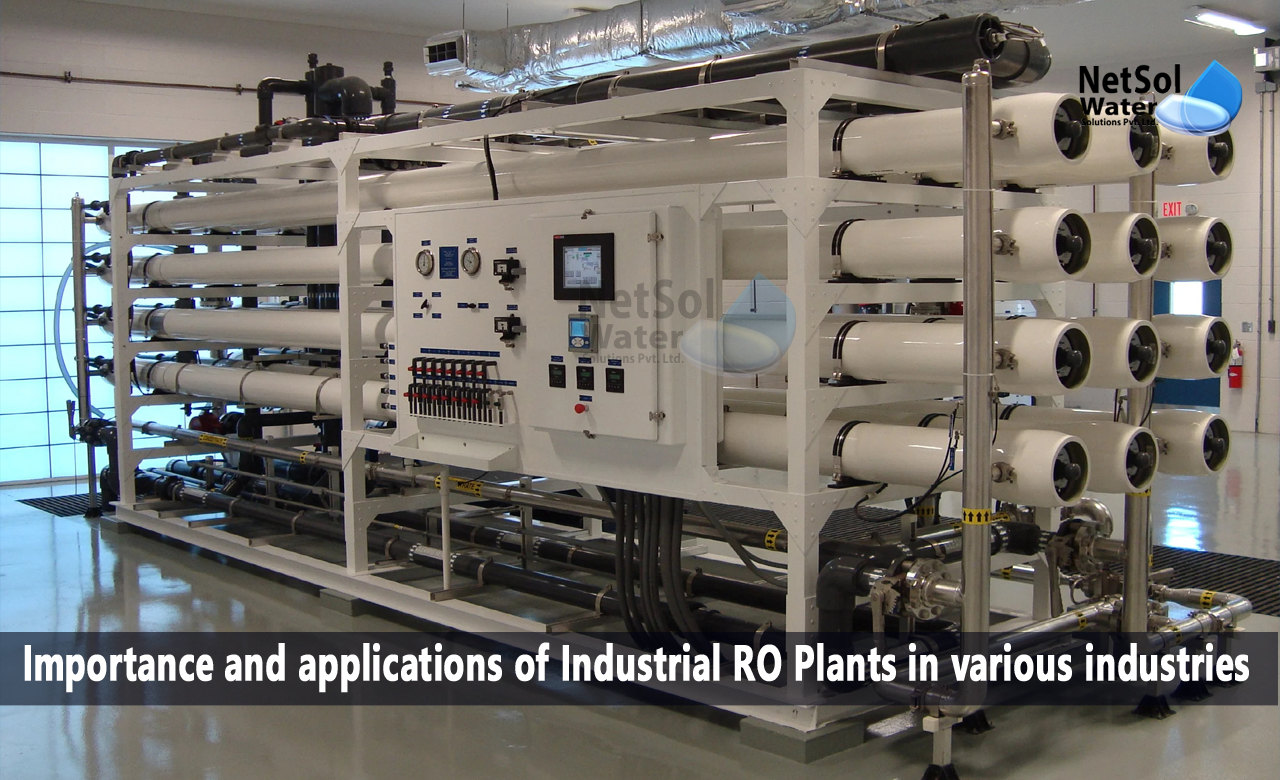Industrial RO Plant is a water treatment facility that uses reverse osmosis to get rid of harmful compounds and contaminants. Heavy volumes of water are required by industries for a variety of functions. As the industries have a limited supply of water, these must be equipped with wastewater treatment plants including industrial RO Plants as tertiary treatment, to reuse water for various industrial purposes.
In this blog, we'll talk about how water is used in different industries and the importance & applications of industrial RO Plants in various industries.
Why do industries require industrial RO Plants?
Industries use a lot of water producing different products. For the purpose of recycling wastewater, the industry must install an Industrial RO plant. Here, we describe the industries that must implement Industrial RO plants to utilize the wastewater.
1: Pharmaceutical: In the pharmaceutical sector, RO water is utilized to create medications and hand soaps. Industrial RO facilities are the best since they add additional minerals that improve the quality of the water. Regular water cannot be used by the pharmaceutical industry to make medications, because it contains too many dangerous substances. If drugs are created using ordinary water, they may become ineffective.
Salts, sugars, proteins, colours, bacteria, and other particles with molecular weights higher than 250 daltons, including viruses, can all be removed using Industrial RO Plants + UV systems. Trihalomethanes (THMs), insecticides, and volatile organic chemicals can also be effectively removed using it.
2: Food & Beverage industry: Industrial RO Plants are used for de-alcoholising alcoholic beverages, and pre-concentrating milk and eggs, as well as concentrating fruit and vegetable juices. RO water is also used to wash fruits and vegetables, produce juices, make soft drinks, etc. Tetra pack juices and soft drinks cannot be made with tap water, since some of the ingredients will lose their original flavour.
3: Agriculture: RO water is applied for pesticide and fertilizer treatments, irrigation, etc. Without it, it is impossible to grow grains, fruits, and vegetables, or to raise livestock. Humans cannot thrive without agriculture, animals, fruits, grains, and vegetables, and thus utilizing pure water for producing agricultural stock is essential.
4: Automobile: Water is used in the automotive industry for washing, rinsing, and painting. Metals, oils, grease, dyestuff, detergents, chromium, phosphates, paint residue, etc. are some contaminants, which are frequently detected in effluents, and can be effectively removed using Industrial RO Plants, so that the treated water can be reused.
5: Aerospace: The production, upkeep, and cleaning of aircraft, as well as the operation of facilities like basins and toilets inside of them, all result in water usage in the aerospace industry.
While water is cleansed on-site, the advantages of water treatment includes an industry’s environmental impact, and less operational and maintenance needs. Over time, this lowers costs for the company and allows businesses the chance to position themselves, as being more ecologically conscious.
Conclusion
A semi-permeable membrane is used in the reverse osmosis (RO) method of water purification to extract bigger particles, undesirable compounds, and ions from water. It prevents pollutants from getting into the membrane's side with less concentration.
The best way to filter out dissolved particles like arsenic and fluoride, across the RO membrane, is with the use of an industrial RO plant. You can recycle the wastewater using Industrial RO plants and save more water.
How can we assist?
The Industrial RO systems that are provided by Netsol Water Solutions are small and take up very less room. Heavy metals are also removed using Industrial RO Plants, saving us from dangerous waterborne infections, and eventually saving fresh water resources.
For further information or to make a product purchase, contact us at +91-9650608473 or drop a mail at enquiry@netsolwater.com



